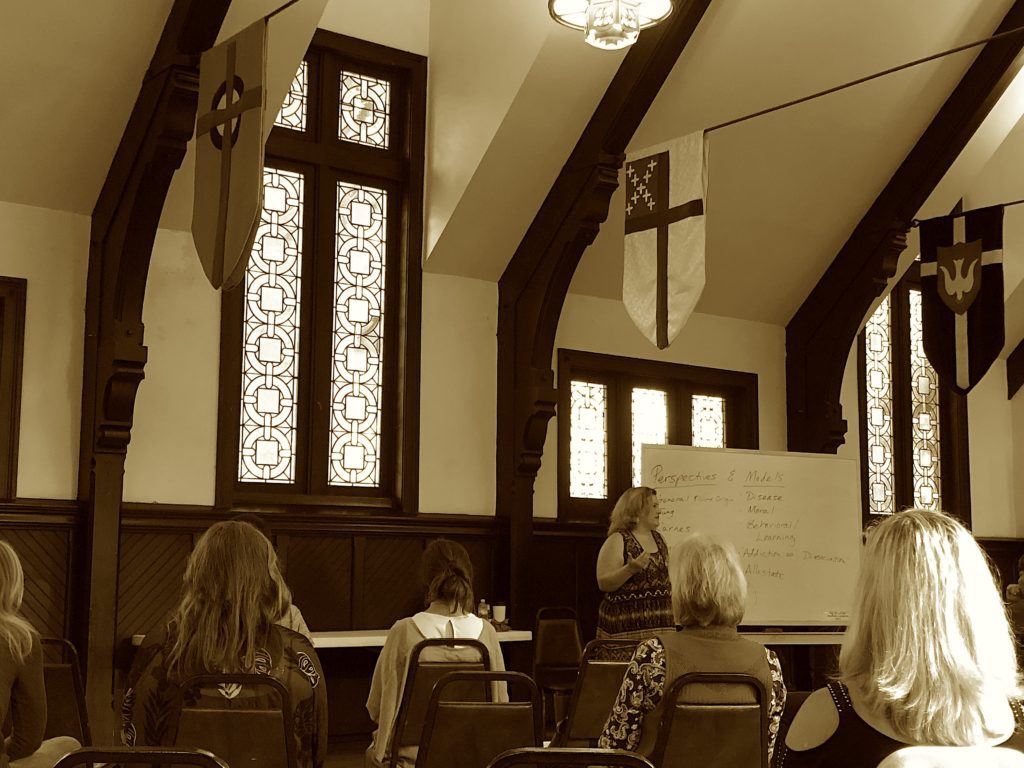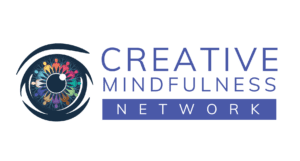Lately, more therapists in my circles who are critical of the Internal Family Systems (IFS) approach to therapy are calling the culture around this method, developed by Dr. Richard Schwartz, a cult, or at very least describing it as cultish. As someone who dislikes most aspects of the approach myself, it’s easy for me to go here too. I find its use of terms like unburdening and Self to be reminiscent of teachings in both the high demands religions in which I was raised and the problematic yoga lineages in which I’ve studied. People’s incessant devotion to Dick Schwartz makes my skin crawl, especially because I don’t feel Dick Schwartz would know how to handle people like me as patients. Yet examining my problems with IFS in the lens of my specialty in spirituality and spiritual abuse causes me to look deeper. After all, I practice and train therapists in another major trauma modality called Eye Movement Desensitization and Reprocessing (EMDR) Therapy, which many others in the therapeutic community label a cult or cultish. I’ve gone through years of my own process evaluating whether or not I am in a therapy cult. In this piece I hope to share with you a small portion of my journey with this unraveling, and in the process, offer you some insights on how you can evaluate for yourself whether or not a therapeutic approach is a cult or whether your connection to it feels cultish.
My EMDR Story
In a 1994 LA Times article on EMDR, journalist Nancy Wartik wrote, “ [Francine] Shapiro also has been accused of adopting the role of guru ministering to a devoted flock. Such criticisms are largely based on the unquestioning acceptance with which some therapists practice EMDR.” The article goes on to cite PTSD specialist Dr. Barbara Rothbaum, “It’s almost like a mass following that has perhaps a cultish nature to it. That aspect turns a lot of people off, me included.”1 Published five years after the official discovery of EMDR, some of the same criticisms persist today. EMDR came into my life when I was a patient in 2004. Although it is not the only modality that played a role in my healing transformation, it was certainly the approach that made the biggest difference and gave me some of the most profound relief from long-time symptoms of suicidal ideation. When I officially became a therapist in 2005, I got trained in EMDR immediately and like so many clinicians who take to the therapy, I was hooked! I knew that EMDR would define my clinical practice. I immediately began going to the annual meeting of the EMDR International Association (EMDRIA) and putting in extra money for training and consultation to become an EMDRIA Certified Therapist. My dissertation pilot study won a research award at the 2008 EMDRIA Conference, and I was eager to become a part of a community tied to a therapy that helped me so much.
Yet something immediately felt off. Sure, at those first trainings and international conferences I met several wonderful people who became mentors and remain friends to this day. Yet this reverence paid to “Francine” as some kind of luminary (referring to founder Dr. Francine Shapiro), coupled with constant talk about fidelity to her protocol and her model felt very familiar to me. It felt like the churches in which I was raised, especially the radically Evangelical part of my heritage on my father’s side. Granted, in the early days of my involvement I didn’t fully realize what Dr. Shapiro was up against with the psychology and psychiatry establishments challenging her discovery and development. Today I can recognize that so much of her and the community’s insistence on research, research, research (preferably of the peer-reviewed, empirical variety) was to establish EMDR’s credibility. Yet at the time, it very much felt like lived experience, cultural adaptations, and humanity was being shut off in the name of science—which can its own cult that people worship.
One of my early consultant mentors in EMDR therapy suggested that perhaps I was so sensitive to anything that felt remotely cultish because of my Evangelical upbringing. I knew she wasn’t being malicious, so I examined it and ultimately determined that my “cult” or “high demand group” watch sensitivity was not a bad thing. For many years I prided myself on being a bit of an EMDR rebel, even challenging Dr. Shapiro publicly in a 2010 journal article, and studying informally with another major EMDR teacher who was her own version of an EMDR rebel. For a while I thought that becoming involved with this teacher’s group would be my answer, until that “cult watch” button in me pinged again—“Would I just be leaving one guru for another,” I asked myself? So we spent several years figuring it out on our own, never losing our love of EMDR, and then eventually found our way back to the mainstream EMDRIA community with a greater sense of rootedness in ourselves and in our beliefs. As we find that, even though the community can still cause us some headaches, the way that Dr. Shapiro left the EMDR community is actually something that I have to be grateful for because it allows us to exist as ourselves even if we don’t agree with all the rules or follow them in a textbook way.
Although I only met Dr. Shapiro (1948-2019) a few times in passing when she was alive, I do know many people who were close to her and insist that she never wanted this guru role that others placed upon her. I really do believe that, because even as I’ve emerged as somewhat of a leader in my own niche part of the field, I wince when people, even jokingly, refer to me as a guru, or try to put all of their faith in me. What I didn’t understand when I first came into the community is that Dr. Shapiro releasing the control on her own discovery by even allowing the EMDR International Association to be founded in 1995, was a major act of humility. You know how many forms of therapy and healing, like Somatic ExperiencingTM have the trademark or ® symbols next to their name to try to protect the commercial discovery? While Dr. Shapiro went that route initially, she later chose not to enforce the trademark because she knew that for EMDR to be seen as credible and open to further discovery, criticism, and inquiry, she had to release the control and let others help her navigate the research, practice, standards, and training of EMDR Therapy. Some see this decision as leaving EMDR wildly unregulated, which it is in many ways, with so many people now creating their own sometimes suspect certifications. Yet one can also argue that this release of control promoted a great deal of innovation and allows rebels like me to still exist and call ourselves EMDR therapists, even EMDRIA-approved trainers in EMDR therapy.
Some People Join a Cult, and Others Don’t
So what exactly is a cult? Cult simply comes from the Latin root meaning to worship, although in modern dictionaries cult is generally defined as a new religious movement whose practices are considered bizarre or abnormal. While cult discourse traditionally has focused around spiritual or religious practices, observers are now seeing the same patterns play out in political movements, like Trumpism, in devoted fan followings around a sport or athlete, and yes, in therapeutic modalities, professional organizations, conferences, and in the halls of academic and research. After surviving two high demand religions and an ashram experience, I maintain that getting out of academia and worshipping at the altar of scholarly research was my most successful breakaway.
I take much of my direction on understanding cults from the International Cultic Studies Association (ICSA). I’ve long been impressed that they don’t keep a specific cult watch list, rather give people a list of qualities and traits that are commonly observed in cults and ask people to evaluate for themselves whether or not they are in one—or whether or not they may be engaging with a more mainstream group in a cultish way. This nuance is very important. I like that they don’t specifically keep a cult watchlist because many groups who qualify as cults will use the term “cult” as a pejorative to slam other groups. For instance, my Evangelical father (who belonged to a group that I clearly experienced as cultish) constantly slammed every other global religion as a “cult” (including my mother’s Catholicism) because they didn’t subscribe to his brand of Christianity. The other facet of this nuance is that some groups try their best not to operate as a cult—yet the faithful will turn their leader into a guru 2 whose word must never be challenged and dive into the lifestyle of a group (whether that be a spiritual community or a therapeutic modality) with problematic zealousness. As one of my friends from a spiritual community commented when I showed her ICSA’s Characteristics Associated with Cultic Groups developed by cult specialist Dr. Michael Langone, “Wow, it seems like some people in this community have joined a cult and others haven’t.”
In our assessment, the fact that such a thing can happen—some people can join this group as a cult and others don’t—shows that there is some hope, that the group and its culture does allow for some flexibility in engagement and devotion. Yet the group leadership also has a responsibility to examine what makes certain people connect to the group with a devotion that could be described as cultish, and address it or preferably discourage it if they are committed to fostering autonomy and dignity in their membership.
If you are wondering whether or not you are in a therapy cult, whether that be as part of a therapeutic modality or as part of a high demand professional organization, we encourage you to follow this link to Dr. Langone’s list and evaluate for yourselves. Because of space and copyright we are not reprinting them all here, yet we do want to focus on a few qualities from the list that we often see at play in therapeutic circles. As a reminder, sometimes these can be fostered by the organization or institution, sometimes these are the ways in which an individual person chooses to engage, and often times it’s a combination:
- The group displays excessively zealous and unquestioning commitment to its leader and (whether he is alive or dead) regards his belief system, ideology, and practices as the Truth, as law.
Comment: I’ve heard this referred to as founder’s syndrome in psychotherapy, and sometimes founders demand this devotion of their followers to be part of the fold, and other times those closest to the founder may demand it of new trainees. If you wonder if this is the case in whatever therapeutic group you’re a part of, notice what happens when you challenge the teachings or ideas of the founder. And although you may be grateful for what this founder has created, notice if your tendency to put a founder on a pedestal is because you don’t trust yourself and your internal wisdom. As human beings there is the tendency to elevate people and institutions.
- Questioning, doubt, and dissent are discouraged or even punished.
Comment: Notice what happens when you ask questions, when you challenge protocols, or ask for modifications, especially in the name of cultural responsiveness. Do you ever feel like you’re going to harassed or even sued for being critical of the group or breaking away? Are you called divisive or accused of losing sight of the larger mission if you do speak up or speak out? Some groups will tell you that you are allowed to ask all the questions that you want and then immediately tell you why you are wrong and why the founder or their teachings or correct. In more extreme circumstances, they may threaten your professional reputation and livelihood if you get too loud with your dissent. This phenomenon may also show up when you question why the peer-reviewed literature does not seem reflective of your lived experience, or the lived experience of more diverse groups of people.
- The group is elitist, claiming a special, exalted status for itself, its leader(s), and its members (for example, the leader is considered the Messiah, a special being, an avatar—or the group and/or the leader is on a special mission to save humanity).
Comment: Watch if the founder or leadership structure routinely uses terms like this therapy is “the best” or our approach “is the only thing that really works.” For me, this is a huge red flag. When I teach on EMDR Therapy I am careful to preface to my students, “Yes, I love EMDR therapy; it worked the best for me and it is the most effective tool that I use in my practice. Yet it’s not a panacea and I do not believe it’s a requirement for healing.” Also, even though it can be healthy to show gratitude for a founder and honor their gifts, be mindful if members of the community routinely uses terms like the Chosen one, or God’s special messenger. Speaking for myself, one time someone referred to me as a Chosen one and I got very uncomfortable and wretched a bit inside. Perhaps because I have seen how many in leadership positions do damage because they believe that they are a Chosen one. And it felt like an immediate burden of more responsibility was placed on me, a human, to not let this person down. Remember that founders and spiritual teachers are just human beings too, and hopefully they will lead you to a greater sense of appreciation in your own humanity.
We covered much ground in this article and it is normal to being feeling activated right now, especially if you connected a few dots about the groups to which you belong now or have belonged. Healing and growth as a therapy field requires this level of examination and reflection. Moreover, this piece only examined the cult issue. There are many overlapping layers, such as the interplay between aggressive capitalism and the industry of therapy and how we train it, and the obvious instances of modern therapy founders appropriating ancient or Indigenous wisdom as new inventions, to be further explored. So please be good to yourselves, feel free to share any of your insights in the comments or to reach out to us with your story (we publish many folks’ contributions on the blog if you are so called), and know that the light of understanding is alive and well—within you! May that light shine where it needs to, revealing what needs to be revealed.
[1] Wartik, N. (1994). The amazingly simple, inexplicable therapy that just might work: Is EMDR psychology’s magic wand or just some hocus pocus? The LA Times, 7 August 1994. Available: https://www.latimes.com/archives/la-xpm-1994-08-07-tm-24471-story.html
[2] The word guru is simply Sanskrit for teacher or literally, “one who removes the darkness.” A genuine guru does not establish themselves as one yet is given this title by the people, and such a guru further understands that their task is to help you realize that the true guru lives within your heart. In modern times, with rampant abuses by gurus, the word has taken on a darker connotation.















5 Responses
I read your article with interest and curiosity. My personal and professional experience is that the EMDR world is not a cult but some folks who are insecure, and or are newly trained and newly graduated from a masters program do, developmentally need to hold on to their training and trainers until they get their sea legs so to speak. I did everything by the book, or 8 phase protocol, until I was adept enough and more confident to not do every single thing by the book! I also appreciate EMDR SO much more than IFS because my IFS training did feel cultish and the training felt unsafe because they let anyone in – and not all folks were ready for that. I felt a certain ethical responsibility to interact differently with folks who were not trained as therapists and were getting opened up and triggered. UGH. It was hard. Also, EMDR has so much more research which I do value.
IMHO if I am to fully recognize the Therapeutic Benefit I am led to engage in some of the cultishness attached to the practices. The difference for me is that I am not required to full devotion.
This was very insightful. And a great reminder in the value of regularly assessing and updating my behaviors and approach when engaging in therapeutic modalities in healthier ways as a recipient and as a facilitator. Thank you!
Thank you for your brave, thoughtful post.
My graduate department in MH Counseling invited an IFS speaker to present to our department. Our department Head spread word among the professors to tell us that the IFS Family Therapist speaker is “world famous.” We were required to attend.
The hype was absurd given the person who showed up: He was not–how to say this?–not top tier academic material. As far as I can tell, also not famous in any field.
There was nothing impressive intellectually in his talk. Quite the opposite, IFS struck me as a crutch for therapists who do not have the mental capacity to absorb theory and apply it in their practice with subtlety and nuance.
The IFS “parts” business struck me as crude. A kind of storytelling that removed all specificity from psychology theory and replaced it with vulgar flash cards of types–as if understanding human motivation could be simplified into shorthand. There was something very childish and picture-book about it, with the “Firemen” and so on. (I may have heard Adler and Frankl rolling over in their graves.)
Cults are for people who lack critical thinking skills: Anytime you are asked to accept authority without questioning it, run in the opposite direction!
My disappointment in my department–not just this incident–reminds me that there should be higher standards for graduate level training in psych therapy. Not just to weed out students, but preemptively faculty too. The faculty in my department do not have the right qualities to practice psychotherapeutic theory, nor to teach it.
They think offering an IFS training session and merely describing the speaker as “world famous” is all that we need to know. Ridiculous and intellectually sloppy! Cultish!
It really does matter if you can incorporate psychological theory into your mind and practice it seamlessly, no matter how many theories you draw from. Empathy is crucial, yes, but without intellectual standards and judgement, cults are a real hazard, along with other abuses.
–Actually, pretty sure the faculty lack genuine empathy, based on how they enjoy abusing power, also a cult trait.
There are higher standards in academic fields that don’t hold human mental health in their hands, who are not responsible for saving lives. I have studied in them.
Without higher standards, bots will do the job better. No one wants to hear that and I wish it weren’t true, but it is. Bots can present as convincingly caring and kind; can respond to human facial expressions perfectly; and be programmed to provide CBT and even psychodynamic therapy infallibly. Bots don’t overstep, don’t monetize relationships, and suffer no envy or will to power. (The companies that own them might, but is IFS any better?)
We need to up our game.
my group therapist was a legit personality disordered man who WAS a cult leader and abused his authority as a career gimmick. you can absolutely have a cult among therapists.